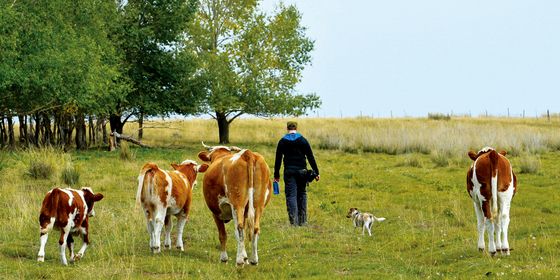Urban dog-owners turn to training schools for help with their pets, but controversies persist about training methods and lack of regulation in the industry
In Huang Yiyong’s boarding school in Guangzhou, Guangdong province, students all sleep in their own air-conditioned room with a balcony, and have access to a swimming pool and vast lawn on the 4,000-square-meter campus. They follow a customized daily schedule that begins anywhere between 6 to 8 in the morning, and ends with bedtime at around 10 at night.
The students take (often private) lessons, get plenty of time to rest in the dorms and play with each other in between mealtimes three times a day, plus plenty of breaks. From time to time, teachers or assistants will check their ears and feet, see whether they are sleeping or behaving well, and even help them attend to nature’s call; sometimes, they’ll even take the students “window shopping” on busy streets.
The catch, of course, is that these boutique services don’t cater to human students: Huang runs a boarding school for dogs, promising to train them to be more well-mannered, docile, and to break out of bad habits such as barking, protecting their food, relieving themselves indoors, being aggressive, or even biting. Eight trainers and several more assistants take care of around 30 dogs for “semesters” of one to three months at a cost of 4,000 to 10,000 yuan per month, covering their living expenses and training fees.













